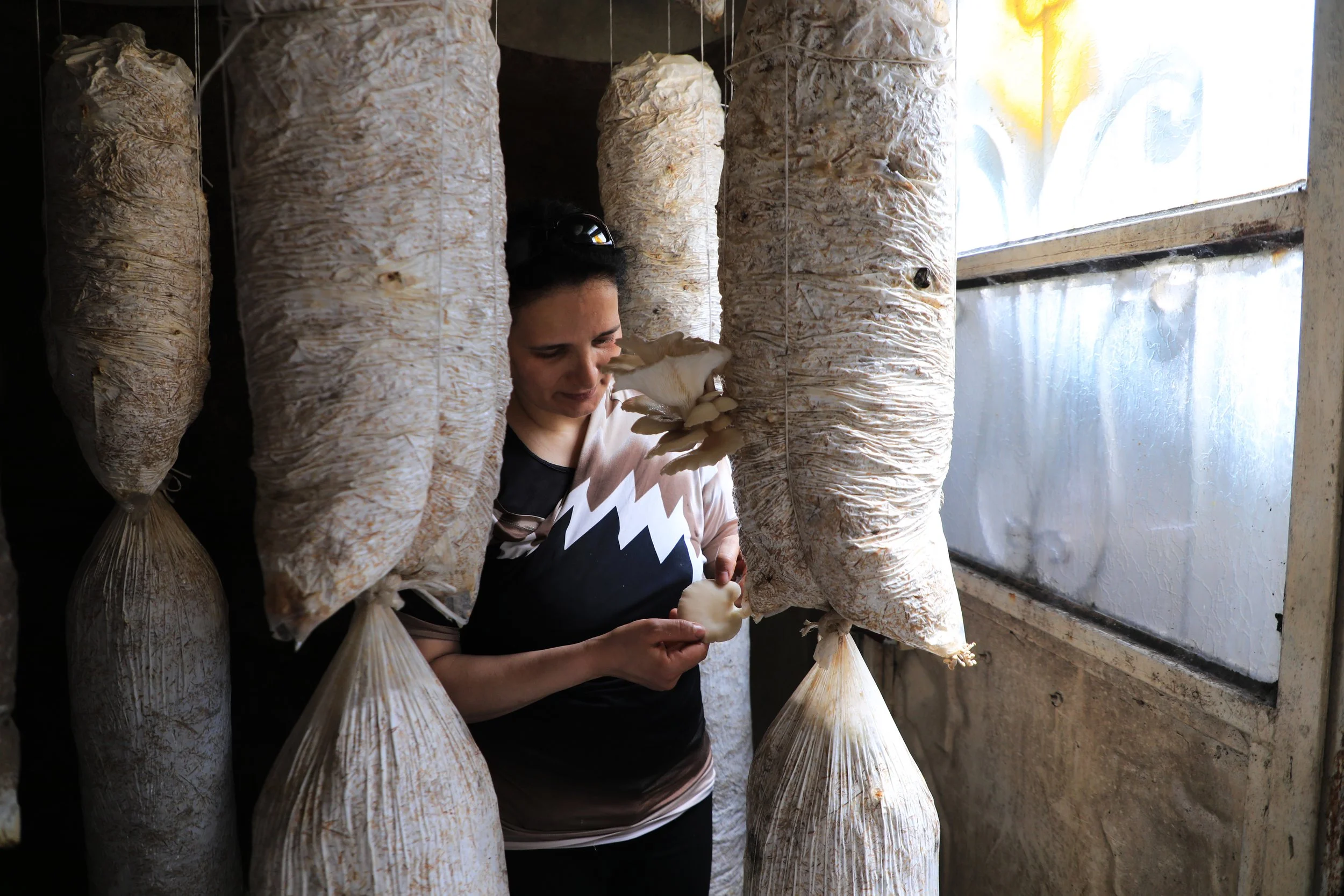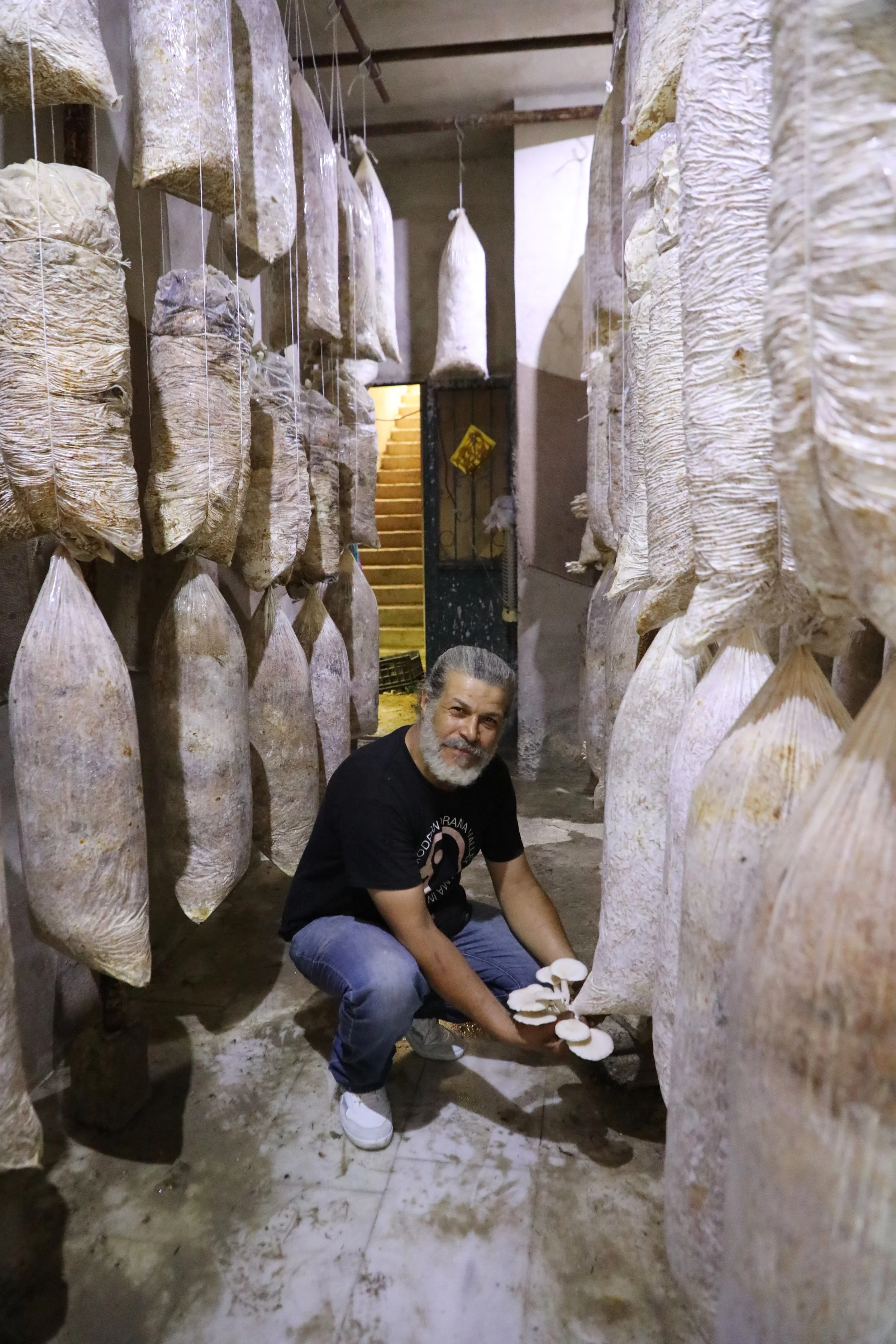Vocational Courses in Damascus Help Beneficiaries to Establish Small Businesses
You can find some photos at the end of the text.
With the rise of unemployment and inflation rates, as well as the increase in the prices of basic needs, the percentage of families living below the poverty line and relying primarily on humanitarian aid has increased. Many young people find themselves unable to build a stable future under these harsh conditions.
In response to these challenges, the Middle East Council of Churches (MECC) continues to support the most vulnerable people by organizing vocational training courses that help participants enter the job market. In addition, MECC provided them with vocational kits as well as skills through business start-up courses, enabling them to establish small businesses that can become sources of income, rather than spending months or even years searching for suitable job opportunities.
In this context, the MECC Diakonia and Social Service Department, Syria’s Office, conducted a vocational training course on growing oyster mushrooms and another course on distilling medicinal herbs and flowers. A total of 30 participants, aged between 25 and 55, benefited from these courses.
At the end of the vocational training, 26 participants joined a five-day business start-up course, where they learned how to start a small business. They then received professional certificates and tool kits including all the items needed to start working, and helped them start their own business.
Jamila, who benefited from the medicinal herbs and flower distillation course, says: “I was looking for a new and unique job opportunity when I read an advertisement on MECC's Facebook page about the distillation course. After completing the vocational training and business start-up courses, I presented a feasibility study for a small business specializing in distilling medicinal herbs and flowers. The feasibility study was approved by MECC team, who provided me with the necessary equipment for free, including a distillation machine, 250 ml and 1-liter bottles, a gas stove, two gas cylinders, a hose, jars, and Damask rose and rosemary plants to start working. MECC team supervised my work step by step.”
She continues, “Together with other beneficiaries from this course, we established a small business called 'Katret Maaloula,' through which we sell our products. Thanks to the assistance of MECC, I now have a name in the market. My partners and I have sold many products and have a good income covering my family's essential needs. Today, I have my business and participate in exhibitions in several provinces, and I am proud of myself. I feel that I am providing a benefit to people, especially since I sell 100% natural products.”
From the oyster mushroom cultivation course, Lina says: "Participating in the vocational course was a wonderful experience. I didn't know anything about growing oyster mushrooms, but today I enjoy and feel proud when the mushrooms grow, and I harvest and sell them. I feel that I have become a productive person in society.”
She added, “To market oyster mushrooms further, I participated in the Flower Exhibition organized by the Syrian Environment Protection Society in Jaramana, in the Damascus countryside. I introduced people to oyster mushrooms, and they bought them from me. The Syrian Environment Protection Society also honored me and awarded me with a certificate of appreciation for the small business I am working on.”
Four participants from the oyster mushroom cultivation course worked together to establish an oyster mushroom farm in Jaramana, cooperating to grow and market the mushrooms. They succeeded in making a profit and ensuring the project's continuity.
Nihad, one of the four partners, says: “The vocational kit we received from MECC played an important role in establishing the business because it helped us to save us money, which we used to set up the oyster mushroom farm. My partners and I have a good understanding and trust in each other. We are ambitious to expand the farm and cover a larger part of the Syrian market and to reach other governorates with our products.”












